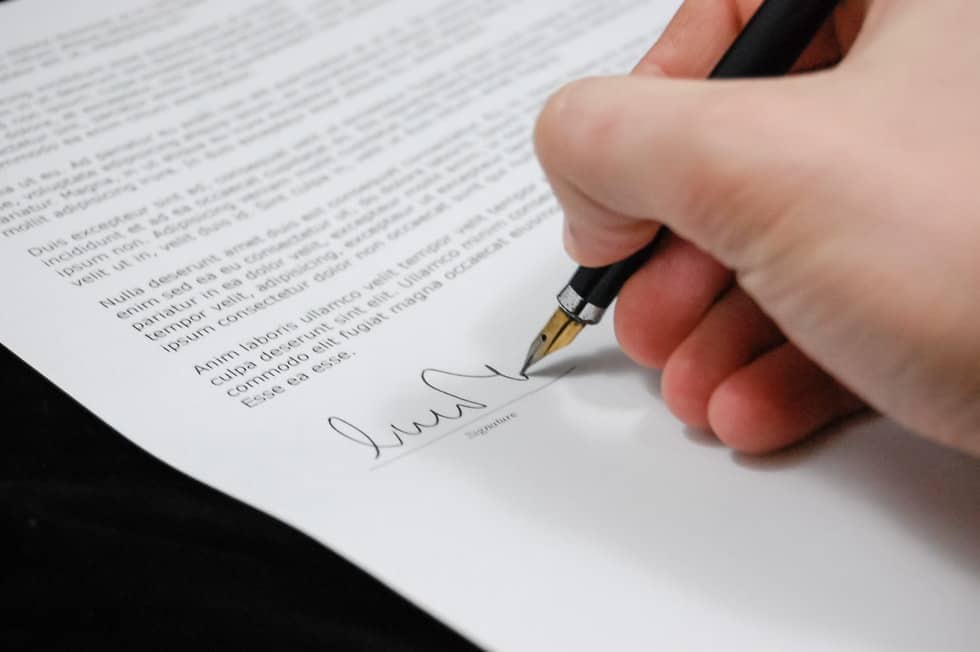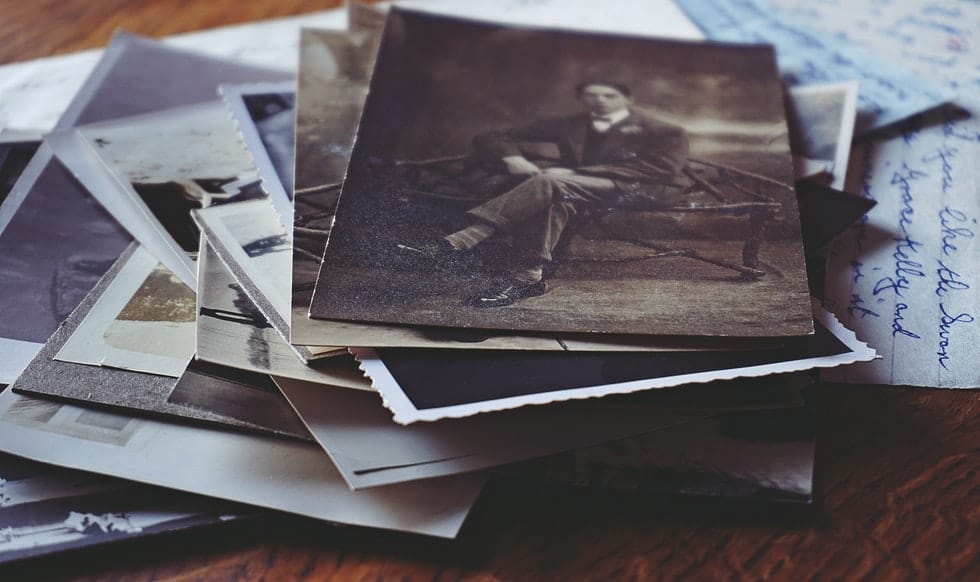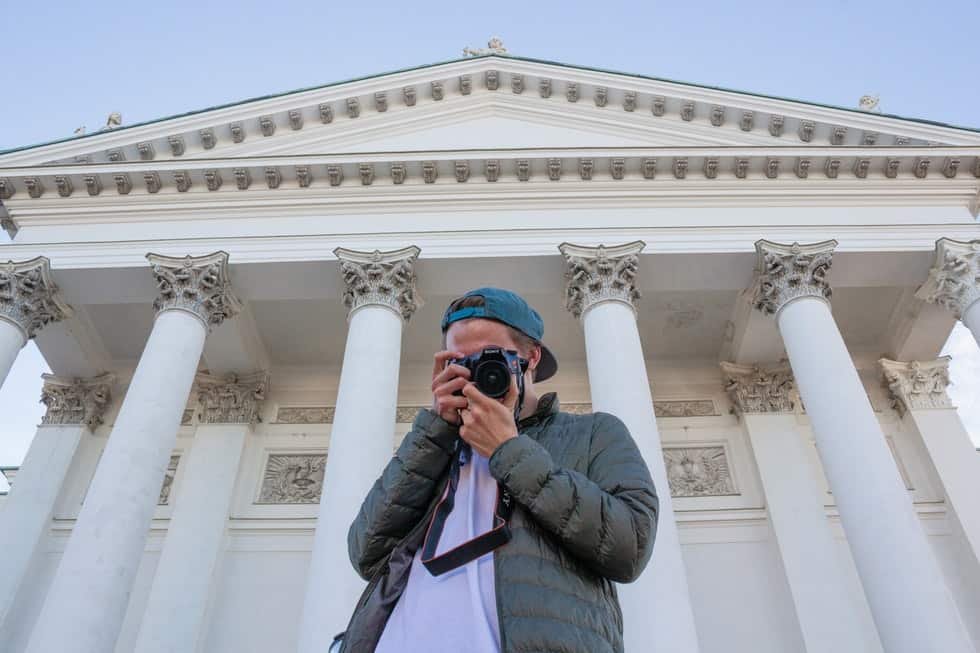How To Register Images With Us Copyright Office
Knowing how to copyright a photo can save you a bit of time and money, but you must understand the process and the full implications. Not all images need copyright protection in the United States, but you'll want to make sure you have legal recourse should someone use your images without permission.
Copyright and Applications
Copyright is a legal right over an image so that you, as the owner of that copyright, can reproduce, sell, or publish your original work with an exclusive right. This collection of rights includes allows you to:
- Create works that are derivative
- Sell and distribute copies of your original work
- Reproduce you copyrighted work
- Perform the copyrighted work (in the form of motion pictures for photographs and images)
- Display the work in a public forum
Copyrights don't necessarily protect original ideas but the expression of those ideas in the form of images and photographs. Copyright becomes established when you snap an image, and as the owner, you can recover damages caused by copyright infringement.
It's relatively easy to register your photographs with the copyright office, referred to as the United States Copyright Office (USCO), but it's not a legal requirement. Remember that registering your images means you can receive statutory damages that are impossible to get if your photograph is not registered.
Filling Out the Right Forms
Basic registration forms can be found online at the USCO website, and you'll find renewal and group registration documents specifically for photographs. Basic registration forms include the Visual Form that is specifically for "Pictorial, graphic, or sculptural works." This online form has multiple parts and allows for multiple claimants for any given work.
This form can also work for pre-existing materials and materials that get added to the work under your copyright claim, so it's suitable for derivative works and compilations. There is a fee for submitting this form to the copyright office, and copyrighted images previously registered using this form require a registration number and year of registration to add to them.

What to Do Next
Once you have completed this form for your derivative works or original photographs, you'll need to include the filing fee, payable to the USCO, and add copies of the material that you are copyrighting with the form.
The form requests a brief statement about the image or other media that you include with the form for copyright, and you must identify any derivative works or compilations in section 6.
Mailing in Your Application
Mailing your application is another easy task, but make sure to attach proper postage when including images or photographs as adding these can make the package heavier. You'll send the application form, copies of the pictures, and the filing fee as a check or money order to the Library of Congress.
The Library of Congress is the location of the USCO in Washington, DC. You'll likely want to send your application using some method that allows you to track the package to confirm when it is received and that it arrived safely.
Online Resources
You can often find assistance with copyright issues online, as many lawyers specialize in this type of law. For many photographs, enlisting the help of a lawyer isn't necessary as the form is relatively straightforward. There is a wide array of information available for free online to help you navigate the entire process.
Copyright Registration Using the U.S. Copyright Office's Website
Understanding how to copyright a photo is made even easier by visiting the U.S. Copyright Office's Website where the forms are available for download, along with detailed instructions. Their FAQ section answers several common questions about how to copyright a photo in addition to addressing some specific and recurring inquiries.
What Makes a Photograph Copyrightable?
There are two criteria that must be present for a photograph or image to be eligible for copyright. The piece of intellectual property in question must be an original work of your creation, and it must exist as a tangible object for some measurable amount of time. Artistic merit is not a factor in whether an image is eligible for copyright.

Original Work
Copyrighted images must be your own original work, meaning that you created it or produced it, and the material in question isn't borrowed or made by someone else who owns it. This arrangement can get tricky when you use contractors to create things like logos or license photos, so be sure to read over any agreements to avoid unnecessary complications carefully.
Original work must also display some tiny amount of creativity, and the U.S. Supreme Court has further defined this to mean that items must be the "fruits of intellectual labor" for eligibility even though this definition has a wide application.
Must be a Tangible Object
It doesn't matter how long your images exist in physical form, but they must exist in a tangible way to get copyright protection. This rule doesn't mean you have to print out all of your images, and copyrighting an image can involve protecting a digital file or saving them using a cloud service.
It's still possible to have copyright infringement issues with digital files; however, it's important to remember that with photographs, in particular, you own them the second they get taken. There's no requirement to register them with the copyright office, but there are benefits to registering them that you should consider carefully.
Copyright Protection is Unchanged by Artistic Merit
The artistic merit of a photograph isn't a factor in whether or not it is eligible for copyright. If the image meets the two vital criteria, you can register and enjoy the added protections afforded to an owner.
The quality of your works also isn't a factor for copyright images, and copyright protection allows you to send a copyright notice when someone has infringed upon your work and also file a lawsuit to recover monetary damages.
Since artistic merit isn't a factor, the quality or aesthetic nature of your copyrighted works don't get evaluated before the copyright is issued, and that can save time while allowing you to expand your portfolio of works in various types of media.
Keep in mind that you must register all of your works with the copyright office if you wish to sue for monetary, statutory damages for copyright infringement potentially. Registered copyrights rarely lose infringement lawsuits regardless of the perceived quality of the material applying for copyright, or where it is published and publicly available.

Kinds of Images that Can Be Copyrighted
Your registered copyright will offer legal protection to your original work, whether you post it on your website, publish it in print media, or provide it as a digital file.
There are a few details to understand regarding copyrighting an image and precisely what protects. Still, in general, you can enjoy exclusive rights and prevent your artistic work from use without permission.
Works That are Considered Derivative
Content that is considered derivative or that is part of a compilation may also register for copyright under U.S. law, and these items can have their own image copyright, or you can amend previous copyright, so it includes your newest photograph.
If you plan to create a compilation, you'll need to file paperwork with the copyright office to amend your previous copyright or create a new one by filling out the image copyright forms again. Photographs that are part of a compilation get the same copyright protection as individual items provided they meet the two necessary criteria.
Digital Materials
You may have seen some language at the bottom of a website that says something about "rights reserved" and the current copyright year. This text is the standard language found on digital materials such as a website, ebooks, or other images. The copyright owner can distribute copies of this work while also making it clear that these are images copyrighted in the United States.
Photos, Slides, and Print Media
Copyrighting an image will protect various kinds of media, including all digital materials, photos, slides, and other types of printed items. It is perfectly legal not to officially copyright your work, which is often called free copyright or a "poor man's copyright."
Reasons for Registering Copyrighted Materials
When you register an image for copyright, you have the option to license the use of that image to another individual or company for their purpose. As a copyright holder, it's also possible to license your work and make money from doing so.
How much you are able to make will depend on several factors, but from a legal perspective, it's a viable source of income with few risks.
The Registration Process and Other Requirements
When you copyright an image, you gain the protection that you wouldn't otherwise have, and that gives you legal backing in infringement cases. The registration process through the U.S. copyright office is simple and allows you to license your work however you choose. Once registered, you can also demand compensation if your image gets used without your consent.

The Application
Although your work is copyrighted the moment you snap a photo or create an image, you gain more rights when you register that image. Once you fill out and send in the application to the copyright office, you'll have to wait until they send back your certificate confirming your legal registration.
Filing Fees, Paper Applications, and Applying Online
Paper applications will take much longer to process than applying online, but the information required for it to be legal is the same. The filing fees differ based on the type of registration you are attempting and whether you need expedited services, but the base fee is $65.
Expedited services are somewhat limited, and there is typically an extra fee of at least $50, but contact the receiving office in advance.
There is also an appeals process if your application gets rejected. The appeal costs $350 for the first claim and $700 for the second. You can submit payments and fees via electronic deposit, credit card, Automated Clearing House (ACH) debit, check, money order, currency, and bank draft.
Copies of Your Work
Copies of your work will need documentation for your application, and these items get added to your paperwork, either as digital media or printed materials that get sent via mail. If you apply for copyright online, it's best to include a digital representation of your work, but you can always contact the office for particular circumstances or clarification.
Copyright Protection
When you file a copyright application in the U.S., you are receiving a collection of legal rights granted by more than one law. For this reason, if you have questions or concerns about the copyright of any of your images, it's a good idea to consult with a lawyer so you can best understand how the law can help or hurt how you wish to handle your image.
The Rights of a Copyright Owner
When you own a copyright, it's up to you to find cases of infringement or other inappropriate uses of your own material. While some of these uses are legal under Fair Use, or Creative Commons law, keep in mind that Terms of Service agreements often contain clauses that make you agree to license an image to them to use their service.
As the owner, you are also allowed to refuse to license your work to anyone or any entity. If your work has registered copyright, you will likely need a lawyer to pursue any kind of legal action against someone.

How Copyright Ownership Works
When you own copyright over an image, it's important to remember that you are responsible for reporting instances that violate your copyright. This responsibility often means submitting written statements to corporations or individuals.
About Stolen Work
There are a variety of different organizations that help regulate and prevent copyright materials from illegal distribution. Still, there's no foolproof way to prevent your work from being stolen or misused yet.
If you do find instances where your copyright material got used without permission, you may want to enlist the help of a lawyer who deeply understands the law in your area. Copyright laws are not international, so each country will have its own, and you'll need to navigate those legal hurdles as they apply to your specific situation.
You can perform a copyright search to prevent yourself from stealing someone else's work by accident. This information is available by using various websites or by contacting the office in the United States.
Types and Benefits of Copyright Ownership
You can use watermarks as a legal way to deter people from using your photos without your permission, but this is not a surefire way to prevent misuse. There is a tactic called a "poor man's copyright," which involves sending a copy of your work to yourself, but this cannot substitute proper registration of an image.
Free copyright is what happens when you create a work, but it is not registered. At the moment you create that image, you own the copyright, which is entirely free. The benefit of using a "poor man's copyright" or free copyright is that it is inexpensive, but you don't get the same protections that a registered copyright work would receive.
How does Copyright Work With the Internet?
It's possible to look up copyrights for photos online, and the U.S. office that deals with copyrights have an application you can fill out to confirm the copyright status of various materials. However, it's often best to contact the creator of the works and inquire about licensing before deciding to use any media with questionable copyright status.
Many sites exist where you can search for an image and find either royalty-free or fair use media. Often all you have to do is credit the original creator for this work, and this is a safe way to get access to content that is copyright protected yet legal for your use.
Social Media and Copyright Ownership
Before posting the photos you've created online, you'll want to ensure that you read the terms of service for each service. A little known fact about social media is that the service may claim copyright of an image that you post, but this isn't true in all cases.
It's in your best interest to understand the terms to maintain a level of protection over your work you are comfortable with and to avoid legal issues later.
Facebook allows users to submit photos and maintain their copyright. The copyright holders must report infringement issues themselves as Facebook does not regulate the use of copyrighted materials. When you post to their platform, you license the use of your image.
Protecting Your Copyright Online
Copyright protection and legal advice is more complicated online, and you are much more likely to experience infringement that is unintentional or committed by individuals outside of the United States.
Some examples of protecting your copyright online actually involve licensing the works using Creative Commons, engaging in Safe Harbor practices, and knowing more about Fair Use guidelines as they may apply to your work.
How To Register Images With Us Copyright Office
Source: https://www.colesclassroom.com/how-to-copyright-a-photograph-or-image/
Posted by: shieldsconesee1986.blogspot.com

0 Response to "How To Register Images With Us Copyright Office"
Post a Comment